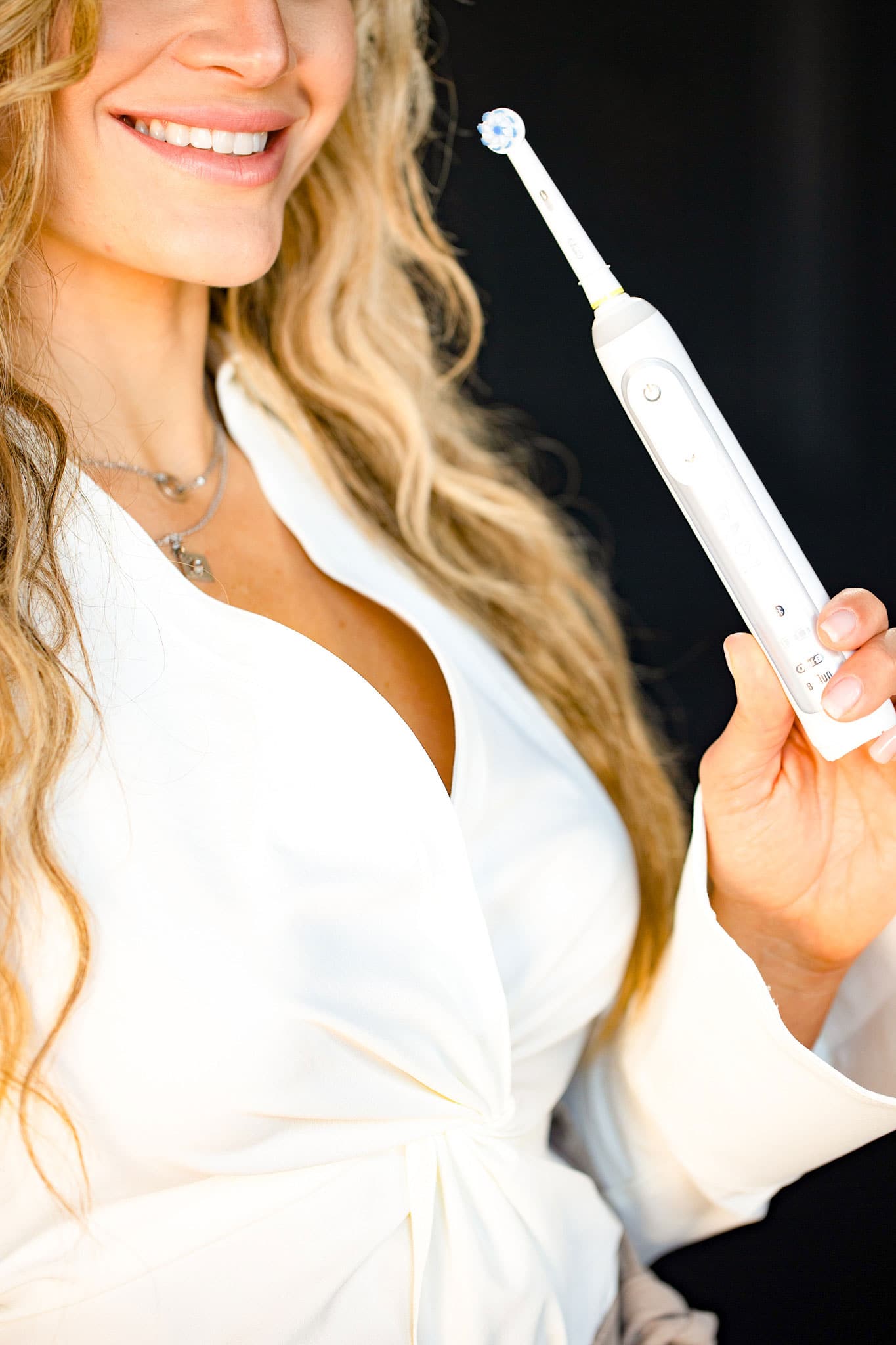CAN I GO TO THE DENTIST PREGNANT?
Yes! And here are the reasons why it’s so important to go to the dentist pregnant.
Congratulations on becoming a mother! Whether this is your first pregnancy or fifth, we want to help make this exciting journey as easy as possible for both of you. It’s important to mention that dental health is imperative to your overall health and prenatal health. We’re here to let you in on everything you need to know for oral health during pregnancy.
You want the best for you and your baby. So you may be wondering if dental care is safe during pregnancy. It is! And due to the nature of pregnancy, it’s vital to maintain excellent oral health during these nine months. Pregnancy can increase your risk for oral health issues, causing a problem that can affect you and your baby. Recent studies have shown that there is a correlation between gum disease and premature birth.
Visiting your dentist, healthy habits, and proper dental care during pregnancy can help you have a healthy pregnancy and a healthy baby.

HOW PREGNANCY AFFECTS YOUR DENTAL HEALTH:
During pregnancy, many changes in your body occur, including in your teeth and gums.
When pregnant, your body increases its levels of certain hormones, like progesterone and estrogen. These can increase your risk for specific oral health problems by causing more blood flow to the teeth and gums.
As you may already have noticed, your eating habits may change. Talk about cravings! You may eat more of certain foods during pregnancy than you did before you were pregnant, especially foods higher in sugar and acid. These kinds of food you eat can negatively affect your dental health.
Due to nausea, tiredness, and sensitive gums, you may brush and floss your teeth less than you did before you got pregnant. Uncleaned teeth leave the opportunity for bacteria to form, creating dental issues down the road.
LOOK FOR THESE SIGNS AND SYMPTOMS OF DENTAL PROBLEMS DURING PREGNANCY:
Be sure to call your dentist if you have any pain or swelling or any of these signs or symptoms of dental problems listed below. Pain and swelling is a sign of infection and should be treated immediately to protect your baby.
Signs and symptoms of oral health problems include:
- Toothache or other pain
- Loose teeth
- Teeth shifting/spacing
- Bad breath
- Receding gums
- Pus in gums
- Red, swollen, tender, or shiny gums
- Gums that bleed easily
- Mouth sores or lumps on the gums
ARE DENTAL X-RAYS SAFE DURING PREGNANCY?
One of the most common questions we get from expecting mothers is, “Are dental X-rays safe during pregnancy?” Contrary to popular belief, X-rays are safe during pregnancy!
X-rays are part of regular dental care and give your dentist an inside look to discover hidden problems with your teeth, gums, and the bones around your mouth. X-rays use radiation to take a picture on film and can only be harmful to your health when overexposed.
Dental X-rays are safe during pregnancy because they use minimal amounts of radiation. For extra assurance, your dentist will cover you with a lead-filled apron and collar to protect you and your baby. Before receiving an X-ray, always let your doctor know that you are pregnant or trying to get pregnant.
HERE’S HOW YOU CAN HELP KEEP YOUR TEETH AND GUMS HEALTHY DURING AND AFTER YOUR PRENATAL JOURNEY:
Brush your teeth
- Use fluoride toothpaste twice a day and floss once a day. Use a toothbrush with soft bristles. Regular brushing and flossing can remove plaque and help keep your teeth and gums healthy.
- Too nauseous to brush your teeth? Use antacids or rinse your mouth with water and baking soda. Just combine 1 teaspoon baking soda with 1 cup of warm water. This can reduce the amount of acid in your mouth. Be sure to consult with your doctor before trying antacids for nausea or any other medication.
Visit your dentist
- Have a dental checkup every six months, even during pregnancy. Be sure to let your dentist know you’re pregnant.
Eat healthy foods and limit sweets.
- Choose fruits and vegetables, lean meat, whole-grain bread and pasta, and low-fat dairy products as much as possible.
- Decrease your consumption of sweets and sugary foods and drink water instead of sugary drinks.
- Opt for water instead of high-sugar drinks. Eating healthy foods is not only great for you but for providing essential nutrients for your growing baby as well.
- Believe it or not, your baby’s teeth start developing between 3 and 6 months of pregnancy. Protein, phosphorus, calcium, and vitamins A, C, and D, will give your baby what he or she needs for healthy teeth.
Don’t smoke.

FAQs
Is dental anesthesia safe during pregnancy?
Yes! In most cases, local anesthesia is used for dental procedures and is safe for pregnant women. Local anesthesia is injected via syringe and does not travel through the bloodstream, so it won’t harm the baby. However, most dentists recommend intense dental surgeries be postponed until after the baby is born if the treatment is not essential.
Can you get a tooth pulled while pregnant?
If you are pregnant and need a tooth extraction, don’t worry, it is safe for both you and your baby. There is, however, an optimal period to get your tooth pulled during pregnancy – the second trimester. The first trimester should be avoided if possible because it’s when the baby is first developing, and the third trimester is challenging as the stationary position may be uncomfortable for a long period of time. The second trimester is best because most of your baby’s organs will be fully developed.
You should 100% get a tooth extraction if you are in severe pain and if there’s a risk of infection or permanent damage to the gums or teeth.
Laying on back at the dentist while pregnant?
As pregnancy progresses, comfort levels will usually decrease. For this reason, sitting in a dental chair may be harder during your last trimester. If dental treatment is absolutely necessary during the third trimester, make sure not to lie on your back. Lying on your back will add pressure to your vena cava which can limit blood flow to the fetus, creating nausea or premature labor. You’ll want to lie slightly twisted to the side while having dental work done, but if possible, schedule your appointment during the second trimester.
Can you get fluoride at the dentist while pregnant?
This is a valid question that many pregnant women ask, and has been scientifically researched for years. Ultimately, it is completely safe and beneficial to your health to get fluoride treatment during pregnancy. However, make sure you only rinse and not swallow any of the fluoride directly as it can upset your stomach and give you too much fluoride at once.
